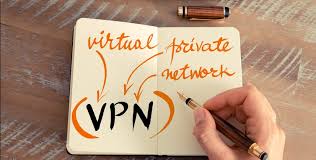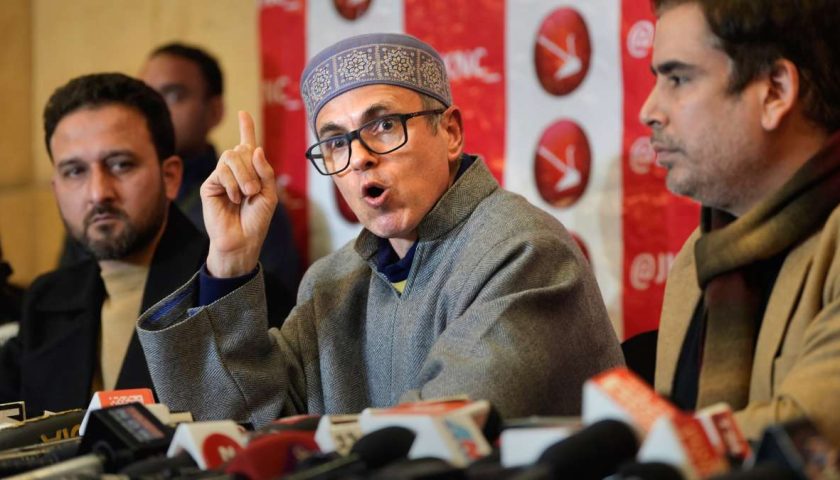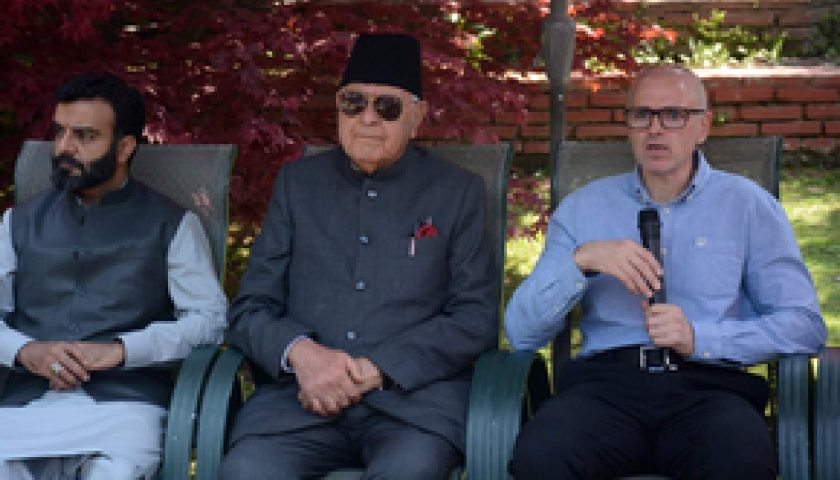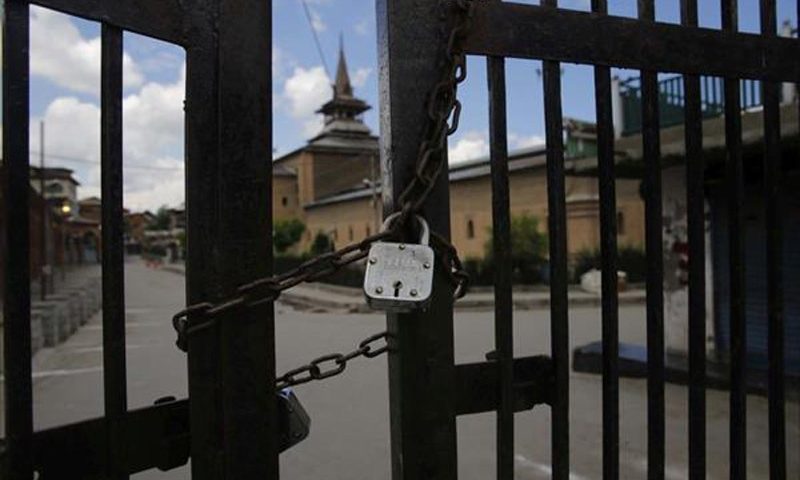‘JKP taking measures to counter Lashkar’s 2017 social media-driven war’
 To ensure a complete ban on the use of social networking sites in Kashmir and make sure access to the banned sites is completely blocked, J&K Police’s Cyber Wing is taking on Virtual Private Networks (VPNs).
To ensure a complete ban on the use of social networking sites in Kashmir and make sure access to the banned sites is completely blocked, J&K Police’s Cyber Wing is taking on Virtual Private Networks (VPNs).
“We are aware that VPN proxy services are being used to access the banned social networks and we have notified the Internet Service Providers (ISPs) to block them and some popular VPN applications have already been blocked,” a senior police official at Cyber Police Station, Srinagar said.
“The ban on social media is a trial to counter the propaganda to incite violence and curb the rumor mongering without banning internet services,” he said.
The senior ranking police official said the ban had been productive and so far results had been good.
“There has been a phenomenal decline in the spread of rumours and use of social media to encourage anti-national and anti-social activities,” he said. “These pages that incite violence are operated from across the border, and majority of the people in Kashmir are not involved in such activities.”
On the curbs on freedom of speech due to social media ban, the official said, “To bring back peace and normalcy, responsible citizens will have to cooperate and sacrifice for some time.”
He termed the ban as a “temporary arrangement” to contain violence.
The senior ranking police official rejected rumours that the Cyber Wing of the Police has called in cyber experts from New Delhi to block VPN applications and Remote Desktop Protocols in Kashmir Valley.
The official asserted that militant outfit Lashkar-e-Toiba has declared 2017 as a social media driven war against India, and that measures were being taken to counter this advancement of militants group radicalizing and recruiting youth on social media through their ‘venomous’ propaganda.
Despite the social media ban and high speed internet gag militant groups have released several video in the past two weeks, and various social media pages and groups dedicated to militant cause were observed to be active and posting latest content and images of militants brandishing their automatic weapons and arms training sessions.
A Cyber Police expert said they were constantly monitoring social media and had blocked many accounts and pages involved in inciting violence and rumor mongering.
“The challenge for cyber security is from the pages that are operated from across the border, and we have reported them through proper channels and have our sources active online to counter any developments in regards to it,” he said.
VPN applications make it impossible to track users as it changes the location of the device to a foreign server allocated Internet Protocol (IP) addresses unblocking any limitations set on the internet.
“We are aware of the fact, and have notified the ISPs and some of them have blocked these techniques and other will be blocked soon,” the Cyber Police expert said.
On being asked about the hackers active in the Valley, the official said, “Apart from fraudulent banking thefts, defamation and black mailing cases, we don’t have any major hacking crimes reported.”
The social media ban on popular networks prompted netizens to use of VPNs to surpass limitations set by the government.
The government has imposed a month-long ban on 22 popular social media networks in Kashmir.
Facebook, Twitter and WhatsApp have also been blocked as a counter measure to deal with rumor mongering and escalating violence in the Valley.
The reason being cited is social media is being misused by anti-national and anti-social elements to incite violence.
The order was issued by the State’s Home department on April 26.
This is the first time the government has used selective ban by blocking specific social media websites and applications in Kashmir instead of implementing a blanket ban on the internet.
High speed internet was restored on April 29 after it was blocked on April 17 to stop uploading of “incite-full” videos.
According to Delhi-based Software Freedom Law Centre, the internet in the Valley has been shut down at least 31 times since 2012, with the longest blanket ban on internet for the period of 5 months in 2016.
According to the government order, the ban was imposed “in the interest of maintenance of public order” blaming social media for inciting violence and disorder.
It was also blamed for spreading rumors, further deteriorating the escalating tension following a fresh wave of student protests which have rocked the Kashmir valley.
The sites and apps blocked also include Wechat, QQ, Qzone, Google Plus, Skype, Line, Pinterest, Snapchat, YouTube (an Upload feature), Vine and Flickr.
Despite the ban, social media timelines could be seen full of rants against the government for banning social media.
The use of VPN as a tool to counter the ban is on rise in the Kashmir valley as people are able to use social media accounts and post on social networks via VPN applications and remote desktop protocol services rendering the ban ineffective.
A Srinagar-based web security analyst claims, “It is impossible to ban all VPN applications as their servers are located in foreign countries and most of them have policies against state censorship.”






